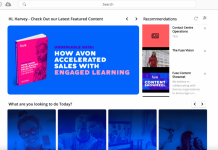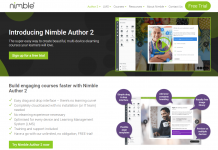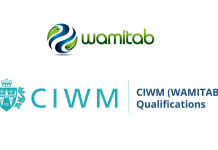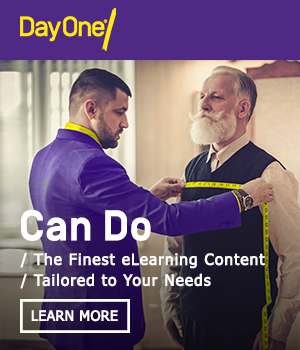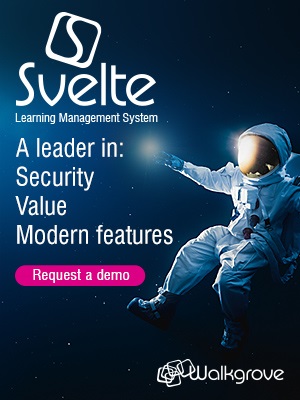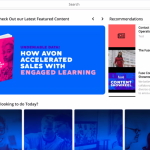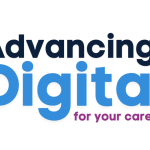By creating new solutions to deliver apprenticeships online, Virtual College are helping to increase accessibility, flexibility and convenience for both the employee and the employer.
Here we look at a case study from Virtual College – using an LMS and web conferencing software to deliver a Level 3 Apprenticeship in Digital Marketing.

This is a review of an innovative online solution to delivering apprenticeships that offers flexibility to employers and engagement to employees.
Helping to sidestep some of the politics presently surrounding apprenticeships, this is an example of meeting and mitigating employer concerns around “time away from work” and recognising the reality of the modern learner: that classroom chalk and talk is not always that great.
Apprenticeship tutors need high quality digital delivery skills
This review also highlights the need for “apprenticeship tutors” to be experts in their field and have a strong set of skills in making online delivery engaging and effective by selecting the right materials and being able to confidently use all the features of the web conferencing solution.
A real benefit of online delivery is enhanced face to face time
It is also important to note that delivering apprenticeships online does not mitigate against face to face engagement. Indeed, from our interviews with the tutors, employers and apprentices, it appears to enhance the quality of one to one and face to face engagement.
This is the view of the company in question:
online delivery actually enhanced the availability of one to one interactions and allowed more time in the programme for meaningful one-to-one, face-to-face interactions
The apprenticeship tutor also offered a high degree of online availability to the apprentice and employer if needed. The term “on-demand” was used to describe the tutor’s role.
Learning digital communication skills for business is crucial to any apprenticeship
With the apprenticeship in question – Digital Marketing, it would make sense that digital learning environments are used in the delivery of the apprenticeship, but I was struck by the apprentice I interviewed immediately making this observation and in addition pointing out how relevant online meeting skills are to his own day to day role and he hopes future roles in the organisation.
Let’s take a walk through the apprenticeship.
The sign up, while digital, actually requires a face to face meeting, but the induction process takes place in the web conferencing environment – Adobe Connect.

This induction process is a 2 to 2.5 hour long in-depth session in Adobe Connect that is highly moderated by the tutor and serves as both a familiarisation exercise and an induction, with health and safety, safeguarding and other good practices required, communications arrangements made, scheduling agreed and a series of agreed tasks set.
The get to know process is both about getting to understand the web conferencing solution and getting to know the tutor. While numbers of students enrolling are climbing, quite a number of these inductions involve only 1 student, but if multiple apprentices commence from one organisation, this induction process can scale up to a maximum of 10 apprentices it was felt.
After the induction process is complete, there are a series of tests designed to assess the learner’s skills. These are administered using an LMS – Enable from Virtual College. The training is also scheduled and managed via the LMS. Apprentices will receive their training schedule within 2 weeks of induction, while the training itself is 5 x 1 week sessions over the 12 months.
Digital delivery allows for flexibility and alignment
Interestingly, the packages are described as roll on – roll off as they are designed to be flexible and offer a non-linear approach to allow the apprentice to align the learning to current workplace activities. This ensures that the employer is very much a part of the process and the role of business as usual is acknowledged, while the qualification is aligned to the business’s needs.
The principle delivery of the 20 percent “off the job training” takes place in the web conference environment and at present Virtual College are using Adobe Connect.
Intense periods of digital delivery works
The off the job training is very intense and this is delivered in a series of highly engaging 5 full-day sessions. This makes for a high impact week.

For this to work there are a number of pre-requisites required from the tutor.
Preparation and curation of content are key
The tutor should be a practitioner and as such be very familiar with the domain – in this case digital marketing as this is about empowering and enabling learners to contribute and converse, ask questions, present ideas and undertake practical tasks. This is not a chalk and talk webinar.
Indeed, the Virtual College tutors have taken the CIW in Social Media Strategy – a professional qualification that is bundled into this apprenticeship.
Activities over this very intense period must be thoroughly prepared by the tutor, who must have a very firm grasp of the delivery environment and not be phased by the powerful features of Adobe Connect. Preparation and practice matter.
Attention must be paid to curating the content to support the delivery.
Learning materials ranging from elearning modules to videos, case studies and presentations are going to be used and discussed in break out rooms, challenged in whiteboard sessions, and practical examples are presented back by the apprentices as individuals and as teams. Graphics and infographics are used in imaginative ways. Peer to Peer interaction is encouraged.

In addition, there are polls, question and answer sessions and tasks and research activities for the apprentices to undertake in their specific workplace that can be uploaded to Adobe Connect.
The day is a full day, broken up into 3 chunks. A maximum of 10 students can undertake such a session with 1 tutor. Feedback is that a week works well as duration.
The success of this style depends upon the engagement of the participant apprentices and this highlights the importance of the induction familiarisation process. The skill of the tutor is hugely important, obviously preparation and practice, but also pace and close monitoring of the learners for involvement and engagement.
The initial challenge is getting the learners to speak, but once this is achieved (usually in under an hour) engagement and interaction levels accelerate rapidly. The tutor is however careful about when to introduce additional features and interactions, and takes considerable care as to when to use web cams. Games are used as ice breakers and careful consideration is being given to gamification. Apprentices are encouraged to introduce themselves to their peers, but no Facebook like environment is used outside the Adobe Connect sessions.
So how does this look over the week?
The Virtual College tutors estimate the week is broken down as follows:
- 30 percent of the apprentice’s time is spent working on assigned tasks, typically research often online aligned to reading the prepared case studies and developing presentations to be delivered during the week.
- About 35% of the time is spent with tutor moderated delivery and interaction using whiteboards, polls, short quizzes and group work such as annotations of documents, text chat and discussions.
- The remaining 35% is used up with e-learning modules, videos and time devoted to learner presentations to their cohort of peers and the tutor, along with commentary and discussion.
This intensity of delivery appears to work, engagement levels have appeared high and the ability to keep delivery in context of the day to day disciplines of a working environment appears to be welcomed by the apprentice and employer.
Over the 12 months of the apprenticeship, 5 of these intense weeks are held.
On demand tutor support really works for the employer and apprentice
The benefits of this to the employer is that the apprentice is still in work, not having to traipse to a classroom for a week and lose out on the office buzz and colleague interactions. Secondly, the employer was quick to acknowledge that this model unlocks a series of other benefits around additional 1 to 1 support being available. The apprentice can go online and engage with the tutor almost on–demand. In addition, much more impactful 1 to 1 meetings can be conducted based on the experience of the digital interactions from both tutor and apprentice.
Employer buy in to learning technology
So, this model of delivery is not just about online provision as face to face meetings are held by the tutor 1 to 1 with the apprentice every other month. These are intense meetings about feedback and progress with evidence held in the LMS against tasks set, and experience, performance and relationships evidenced from the Adobe Connect sessions. This is a neat balance of 2 integrated technologies that appears to work well delivering learning engagement and recording very accurately the time spent by the apprentice away from day to day work – the important 20%.
Perhaps the greatest testament to this approach is that the employer in question is actively considering switching their other apprentices (who are using a classroom solution for the off the job training) to this approach.
The reasons are two fold – one the logistics of time away is felt to be disruptive to both the organisation and the apprentice, and secondly, that this is a digital marketing apprenticeship and digital meeting skills and presentations etc are core to the desired skills to be acquired by the apprentice.
In addition, the employer felt involved as they are able to access the tutor and check progress quickly and easily – and indeed raise issues and gain clarity as to the whole apprenticeship process quickly and easily via Adobe Connect. There is no doubt that employer “buy in” is crucial to the success of any apprenticeship programme and apprentice. Therefore, finding modes of easy and on demand employer involvement is crucial – this approach appears to have achieved that.
To the apprentice, the online experience at first is a little scary, but is soon highly valued as they quickly realise it imbues in them an enhanced level of confidence in these crucial business environments. There is also a professional qualification attached to the apprenticeship from the CIW in Social Media Strategy.
The opportunity to build an ongoing relationship with the tutor online and in face to face meetings was hugely welcomed.
Interestingly, both the tutors and employer in question felt that digital skills and specifically digital communication skills are so important to businesses that this model of delivery would work with other apprenticeships, not just as a digital media apprenticeship.
Summary of the Solution
To summarise, this is an imaginative way to deliver an apprenticeship, but one that requires considerable planning by the tutor, good domain knowledge and excellent facilitation and delivery skills in a digital learning environment – such as Adobe Connect coupled with the use of a modern LMS like Enable from Virtual College.
My thanks go to the Apprenticeship delivery team at Virtual College and especially Michael and Matthew (line manager and apprentice respectively) at Advanced Retail Solutions for their time and insight.
Learn more about the apprenticeship delivery solutions offered by Virtual College.

David Patterson
Lead eLearning Consultant
About David
Our lead elearning consultant David Patterson is an expert in training technologies such as learning management systems, and in elearning best practices.
He has helped many public and private sector organisations across the UK, Europe and worldwide to create and deliver engaging, effective elearning.
David is joint author of several research papers including the highly acclaimed Learning Light reports on the UK elearning market.




